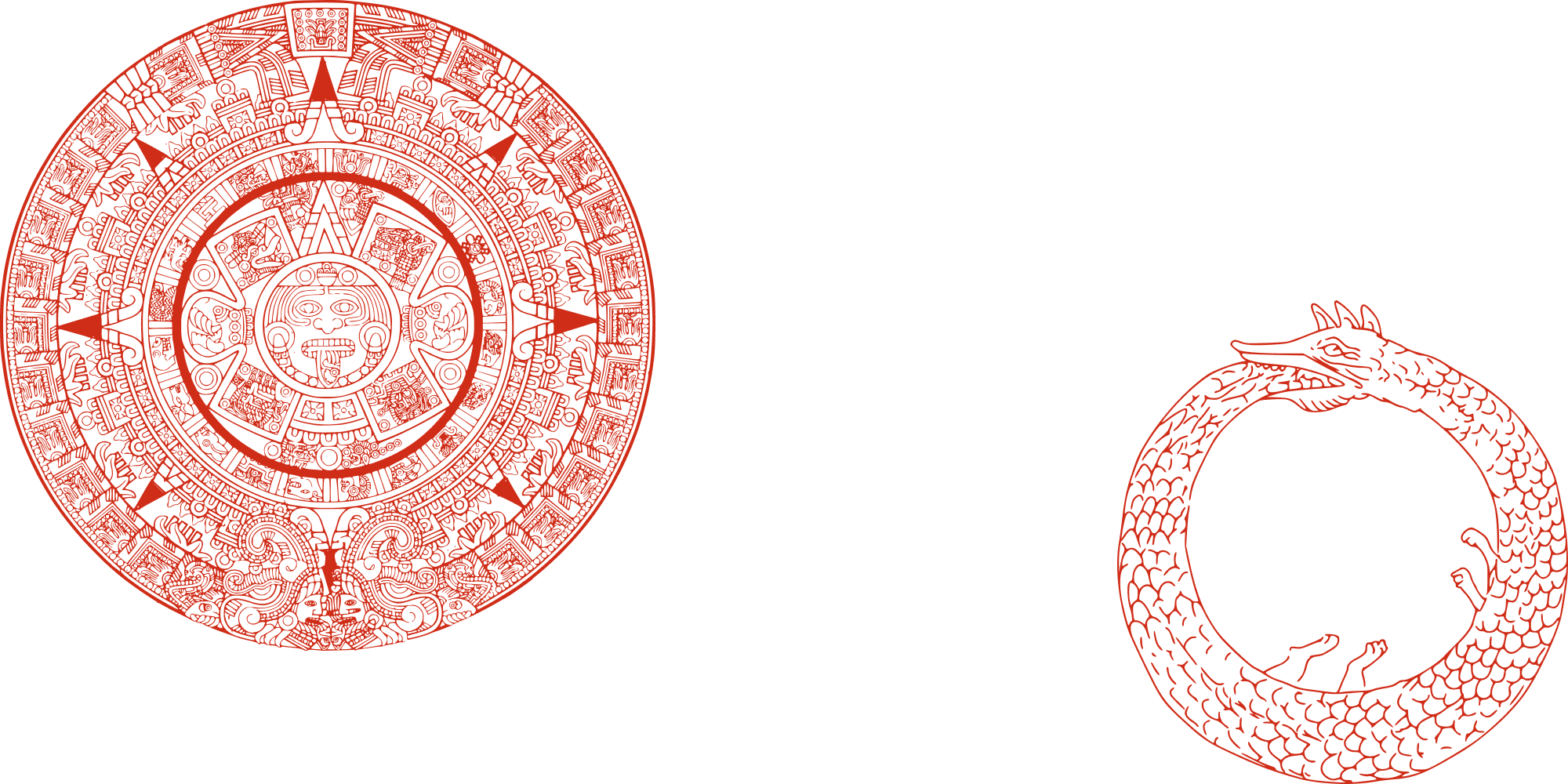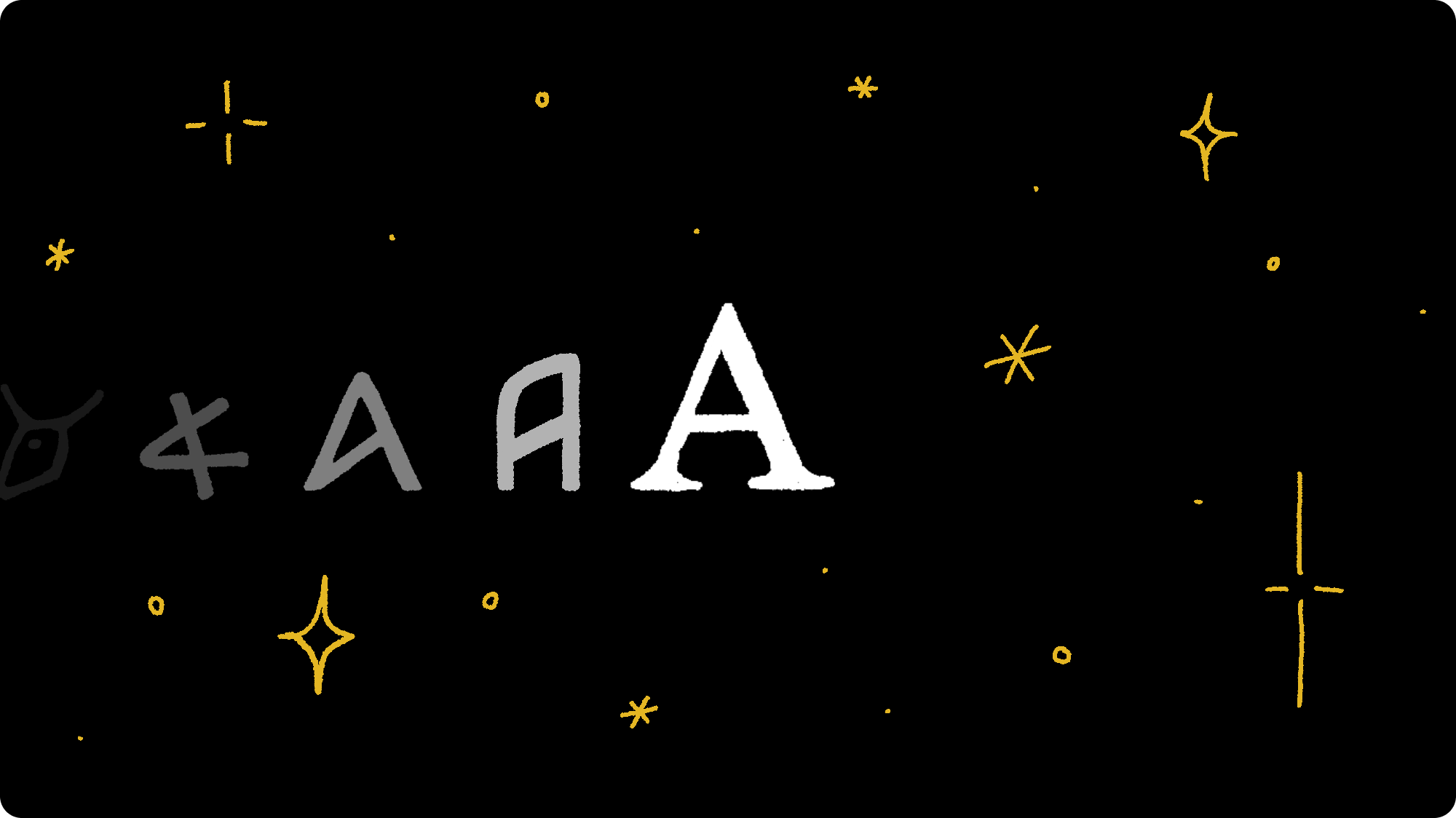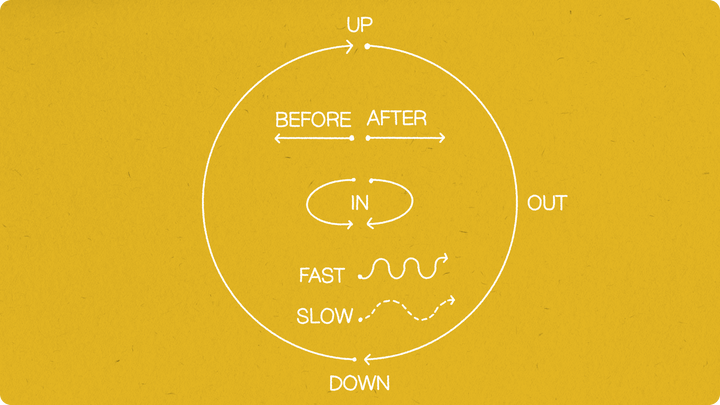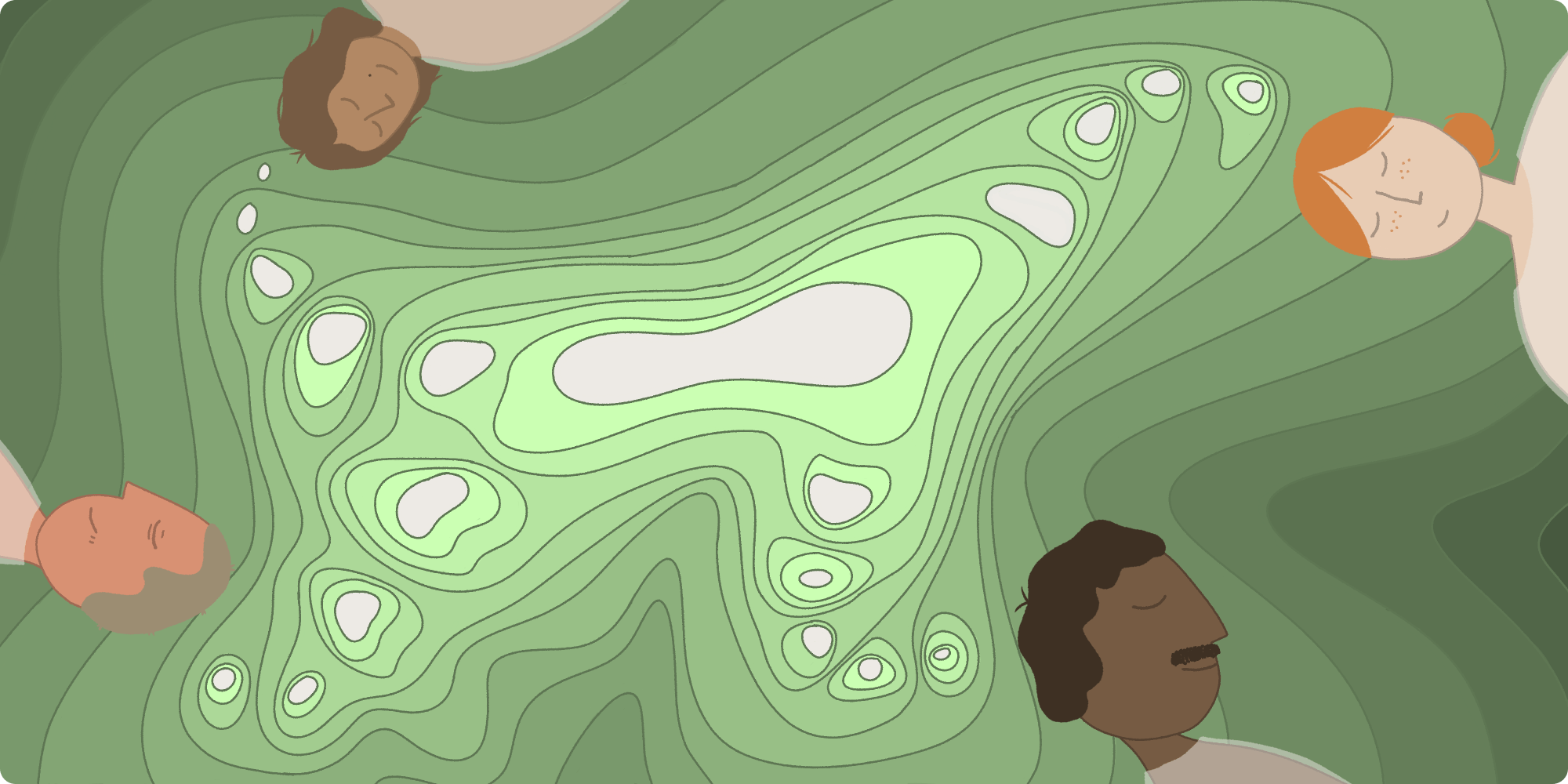West-Eastern Times
Linear Systems in a Non-Linear World and the Promise of Teleology

The Indefinite Nature of Time
In nature, time has been proven to have a quite fluid behaviour. It has various speeds and varying notions of the present.
Einstein had discovered, with his theory of general relativity, that time is afftected by the gravitational pull of large masses. In fact, time passes faster while up in the mountains, and slower the closer you get to the Earth.
The concept of the present is a highly local phenomenon, "like a bubble around us", as supported by Italian theoretical physicist Carlo Rovelli. The gap between the past and the future has varying durations on Earth as opposed to on other planets. The distances separating us are not only spatial, they are temporal —that's why we measure said distances in light-years.
"There is our past: all the events that happened before what we can witness now. There is our future: the events that will happen after the moment from which we can see the here and now. Between this past and this future, there is an interval that is neither past nor future and still has a duration: 15 minutes on Mars, eight years on Proxima b, millions of years in the Andromeda galaxy. It is the expanded present. It is perhaps the greatest and strangest of Einstein’s discoveries."
—Carlo Rovelli, Now Means Nothing
A Matter of the Mind
Rovelli has also observed that the "flowing" of time is more a result of how our brain works than of how time works. What we observe when we perceive "time" is actually entropy; we notice the change that happens. For us humans, time is the measure of change. That's why it is so closely linked to aspects of our psychology like attention, expectations and age.
Time is linked to attention. When you focus on the passage of time, say, during meditation, it seems to move slower. Whereas when you get distracted, you feel like you blinked and two whole hours have flown by.
Time is also linked to our expectations of change. Researchers have "demonstrated that the perception of time is wedded to our brain’s constantly updated expectations about what will happen next." A more accurate saying would be "time flies when you're having more fun than expected."
And most evidently, time perception changes with the different phases of life. As a child, a year represents only, say, an eighth of our life. As we grow older, a year gradually represents a thirtieth, a fortieth of our life, making that same year appear to go by faster.
We experience life linearly, as a continuous sequence of events. Therefore our perception of time, since linked to that recognition of change, is linear by nature. It is somewhat fixed in this model. What happens in turn is that we create systems (institutions, governments, economies, etc.) rooted in this linearity, further enforcing this notion, and often encounter frictions against the non-linearity of the natural world.
Nature's Cycles
In nature, everything is cyclical. Seasons, night and day, tides, life and death. Things come and go constantly in nature.
We experience it first-hand everyday with the cycles of our bodies. We are cyclical beings. Inhale, exhale, repeat. Drink, tinkle, repeat. Menstruate, ovulate, repeat. Sleep, wake, repeat. Our bodies are only cycles. And we are only ever aware of a fraction of the mechanisms of these precious machines. All bodily systems are cyclical yet (Western) medicine is linear. We treat the symptoms and not the causes. Symptoms are but a signal for when something wrong is happening to some part of a circular system.
Poles Apart
Most man-made systems are incompatible with Mother Earth's systems. Ours are linear and Hers are cyclical. In human world, we look at capitalism and see growth that is artificially linear and allegedly infinite. Whereas when we turn to nature, we can observe growth that is cyclical by design and truly infinite.
And those man-made systems perpetuate our fixed linear understanding of time (and of systems), further enlarging the gap between reality and our approach to it.
"Time’s arrow has provided vital bedrock for the formation of contemporary capitalism."
—Siobhan Leddy, Time After Time
Chronological time is good for business because as the past fades away in our distant memory and the future shrinks as we age, time becomes a rarity and gains value as an asset.
"Such scarcity contributes to the capitalist commodification of time, in which time — through waged labour — is reified as a measurable unit, synonymous with its monetary value."
—Siobhan Leddy, Time After Time
This is also seen in Leddy's concept of algorithmic time, in which our social media feeds present us with an unnatural flow of information; whatever sequence best suits the current needs of the ad-buying market. "If chronological time imposes a sense of the “natural” amount of content for a given time frame, algo-time eliminates noise so that you can gorge on signal."
Teleological Consciousness
This is where I want to introduce the notion of teleology which I recently came across in Ted Chiang's Stories Of Your Life and Others short story collection. In the Story of Your Life novella about time and language, Earth gets visited by aliens who have a simultaneous mode of consciousness, as opposed to our sequential one. (You might be familiar with the 2016 film adaptation Arrival directed by Denis Villeneuve.) Chiang explains the difference between human nature and the fictive alien population's nature as follows: "When the ancestors of humans and heptapods first acquired the spark of consciousness, they both perceived the same physical world, but they parsed their perceptions differently; the worldviews that ultimately arose were the end result of that divergence. Humans had developed a sequential mode of awareness, while heptapods had developed a simultaneous mode of awareness. We experienced events in an order, and perceived their relationship as cause and effect. They experienced all events at once, and perceived a purpose underlying them all. A minimizing, maximizing purpose."
Chiang presents the concept of a teleological interpretation of events: "By viewing events over a period of time, one recognized that there was a requirement that had to be satisfied, a goal of minimizing or maximizing. And one had to know the initial and final states to meet that goal; one needed knowledge of the effects before the causes could be initiated."
Teleology refers to the study of ends or purposes. For example, a teleologist attempts to understand the purpose of something by looking at its results. This is also what Siobhan Leddy proposes in her piece about algorithmic time; "Linear time also suggests progress, a sense that the winds of history are inevitably hurtling us along the timeline from point A to point B, in which the B stands for “best of all possible worlds.” On the surface, it sounds nice. Why not advocate for a teleological view of history in which the world can become better, for everyone, all the time?"

The Self-Fulfilling Prophecy of Rainforests
What I like about the teleological approach is that it encourages us to consider the end result before initiating what will ultimately cause it. This made me think of something I learned in the book Novacene. In his book, James Lovelock speaks of Earth as a single, self-regulating system (also known as the Gaia Hypothesis). And the teleological approach can be observed in the way a rainforest ensures its survival:
"This is easily seen in an ecosystem like a rainforest, where vegetation both requires a wet climate for its survival and causes a wet climate through the constant evaporation of water vapor from its leaves."
—James Lovelock, Novacene
Naturally, a phenomenon as Avatar-y as this can create a lot of resistance in the scientific community because it involves circular logic. How can something both cause and be caused by the same thing? Our linear mentality fails to explain how self-regulating systems like this work. For our brains, there needs to be a 1-then-2-then-3 linear sequence of causation.
It is only through a teleological approach that nature was able to design an ecosystem that can produce the very thing it needs to survive. By knowing the effect before initiating the cause, like Chiang's heptapods and how they communicate.
"Our tendency to imagine causation linearly is merely habitual and doesn’t necessarily reflect how the world operates. This tendency might be a learned behavior mirroring the linear nature of human language which, whether in speech or writing, moves in a step-by-step progression."
—James Lovelock, Novacene
Designing For Generative Futures
Ecosystems, rainforests, the body, these are displays of the exquisite design skill of Nature. Nature designs sublime systems that make great use of resources and allow for circularity. Everything that is not made by nature is designed by someone. The world we shape shapes us in return. How can we design with more circularity in mind? What if we cultivated a more teleological mode of consciousness?
For us, time is the measure of change. We must leverage that as a means to make the potential actual. Time as the distance between imagination and reality. And the vector to travel that distance is design. We get to design, through more teleological approaches, systems and institutions that can produce the desirable future we owe humanity.
Further Reading
- Now Means Nothing: How Time Works In Our Universe, by Carlo Rovelli for Discover Magazine
- Language alters our experience of time, by Panos Athanasopoulos for The Conversation
- Reasons Revealed for the Brain’s Elastic Sense of Time, by Jordana Cepelewicz for Quanta Magazine
- Physics Explains Why Time Passes Faster as You Age, by Ephrat Livni for Quartz
- The Strange Subjectivity of Time, by Stephen Johnson for Big Think
- Time After Time, by Siobhan Leddy Real Life
- Story of Your Life, short story by Ted Chiang
- Novacene book by James Lovelock



